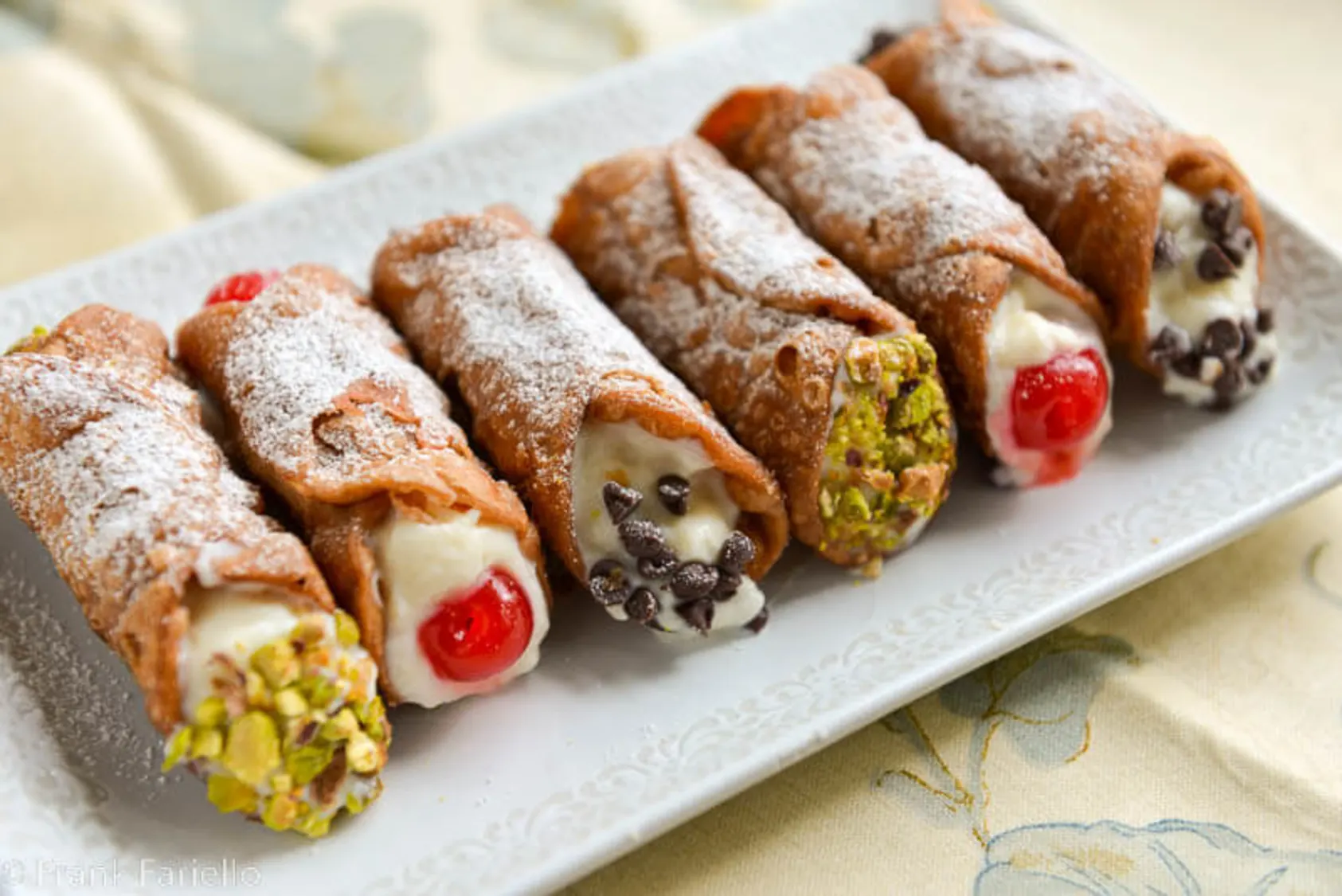
Sicilian Cannoli
Crispy pastry tubes filled with sweet ricotta cream and pistachios.
Ingredients
- •Cannoli shells
- •Ricotta cheese
- •Powdered sugar
- •Pistachios
- •Chocolate chips
- •Vanilla extract
Instructions
Prepare Filling
Mix ricotta with sugar and vanilla
Fill Shells
Pipe ricotta mixture into cannoli shells
Garnish
Dip ends in pistachios and chocolate chips
Cannoli Siciliani, meaning "little tubes" in Italian, are iconic Sicilian pastries that have become one of Italy's most beloved desserts. These crispy, tube-shaped pastry shells filled with sweetened ricotta cream perfectly represent the decadence of Italian confectionery.
The history of cannoli dates back to the Arab rule of Sicily (827-1091 AD). Legend says they were first created by the women in a harem near Caltanissetta as a symbol of fertility. Initially served during Carnevale celebrations, cannoli eventually became a year-round treat throughout Sicily and beyond.
The magic of cannoli lies in the contrast between the crispy shell and the creamy filling. The shells are made from flour, wine, and butter, rolled thin and wrapped around metal tubes before frying to achieve their signature cylindrical shape. The classic filling combines fresh ricotta (traditionally sheep's milk ricotta) with powdered sugar and vanilla, though some variations include cinnamon or orange zest.
Modern interpretations of cannoli showcase various creative adaptations. Some bakers dip the ends in melted chocolate before adding pistachios, while others incorporate chocolate chips, candied fruits, or even a coffee-flavored filling. Mini cannoli have also become popular for parties and celebrations.
In Sicily, cannoli are traditionally served as a dessert or with afternoon espresso. The shells are filled just before serving to maintain their crispiness. Many Sicilian cafes display empty shells and fill them on demand to ensure the perfect texture contrast.
While undeniably delicious, cannoli are a rich dessert. One standard-sized cannolo contains approximately 200-250 calories. The ricotta filling provides protein and calcium, while the pistachios offer healthy fats and antioxidants. However, they're high in sugar and saturated fat, so moderation is key. Those with gluten sensitivities should note that the shells contain wheat flour, and individuals with nut allergies should be cautious of versions containing pistachios.
